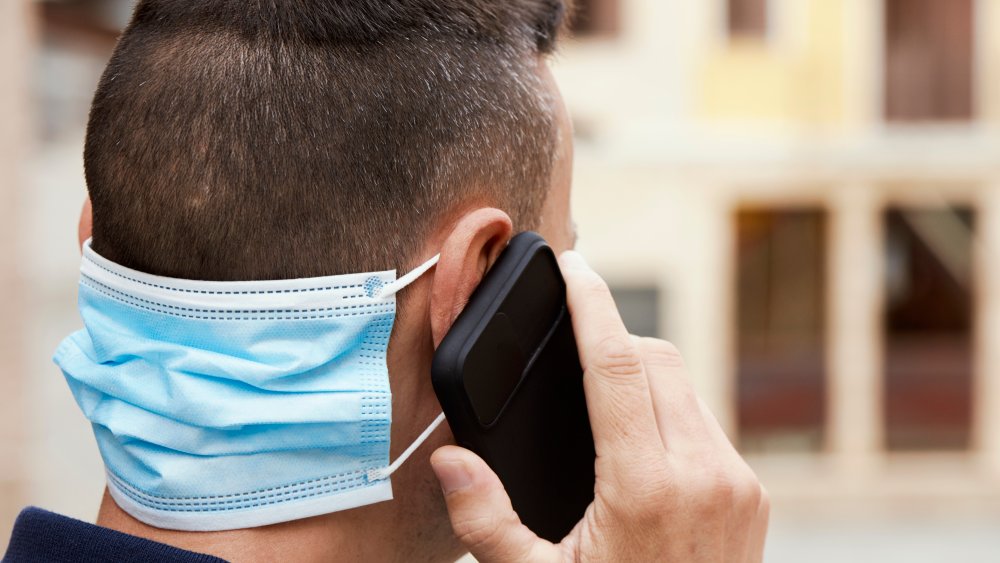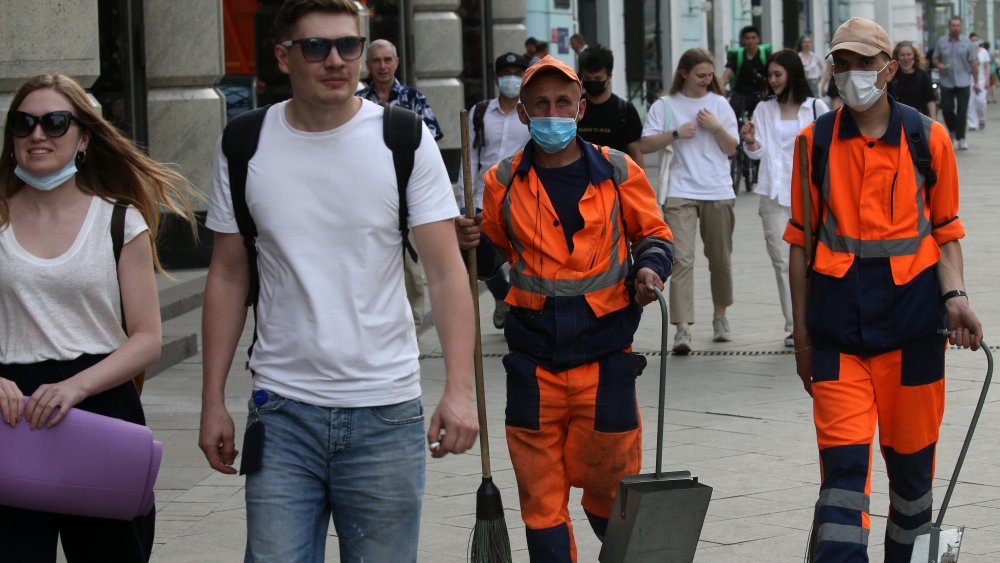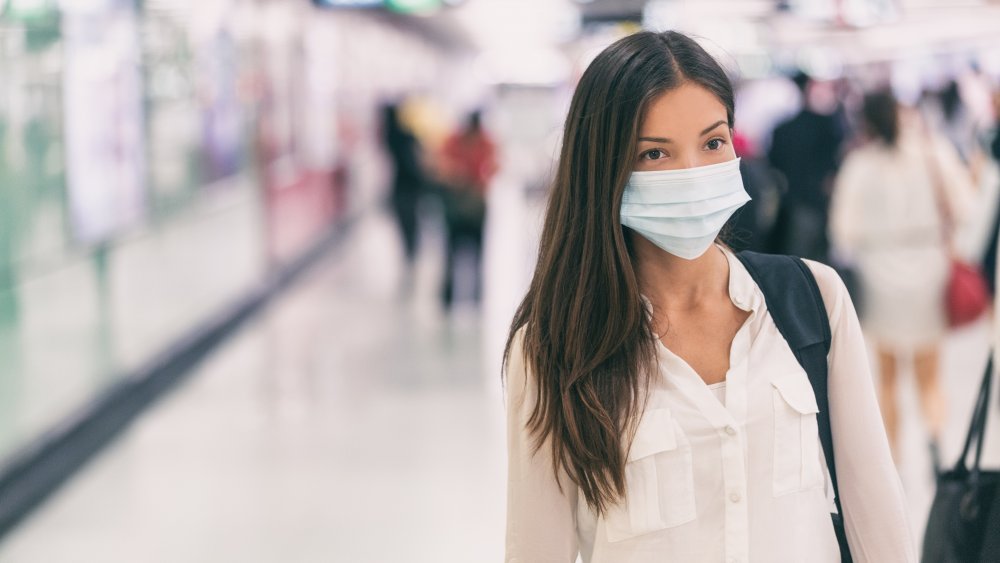The Reason Some People Refuse To Wear Face Masks Isn't What You Think
It's become the unspoken battle of recent months, a silent yet instantly recognizable divide between those who wear face masks when outside the home as per CDC guidelines and those who prefer to go without. It's when both types of people get home that the gloves (as well as the masks) come off, with many on both sides going online to unleash vitriol against those who do not do as they do. While mask wearers accuse non-maskers of endangering the lives of others, non-maskers call out mask-wearers for what they see as pointless virtue-signaling.
Naturally, such discourse tends to take a turn to the political, since whenever we're dividing people into two types of anything, we somehow find a way to assign them to "red" or "blue" camps, as well. In the case of mask-wearing, since prominent Republicans including both the POTUS and VP have famously been eschewing any type of facial covering (via USA Today), a face mask is now seen by some as an indicator that the wearer is most likely a liberal Democrat. Non-mask wearers, on the other hand, are seen as being right-wingers. Well, the truth, it seems, is a lot more complicated than that. Different people have different reasons for wearing face masks or not, but politics doesn't appear to be the only decision driver.
Mask-wearing tends to split along certain demographic lines
MarketWatch took a look at the numbers surrounding the divisive issue of mask wearing. While they did find a certain amount of political correlation, with just 34 percent of Republicans compared to 60 percent of Democrats reporting that they wore a mask at all times as of the second week of June, they did note that the mask/non-mask political divide was a lot narrower back in April.
There are a few other demographic difference makers, as well, with wealthier survey respondents being far more likely to go masked than those at the opposite end of the economic spectrum (face masks aren't free, after all, unless you're shopping at Whole Foods). Women are more likely to wear masks than men, who may see masks as a sign of weakness. Rural respondents, naturally, are less inclined to wear masks than people in the hardest-hit, densest urban areas such as New York and Los Angeles. And of course, people whose own families have been impacted by COVID-19 have a tendency to join up with Team Mask.
Refusing to wear a mask may be an act of denial
As to why those members of Team Bareface chose this option, David Abrams, a professor of social and behavioral sciences at NYU's School of Global Public Health, has a theory. He thinks that deep down, many may be afraid of or upset by the "new normal," and while they'd never break the rules by going shirtless or barefoot in a public place, that mask-wearing is just too new and different and alien. Refusing to wear a face mask, paradoxical as it may seem, is a gesture by which some protest not only the authority supposedly decreeing the mask-wearing, but also, on some level, the disease itself that has wreaked so much havoc on life as we knew it. As Abrams told MarketWatch, mask refusers maybe "don't want to admit that this is the new normal... They want the old America that they're used to."
And yes, we'd all like to hit rewind on this whole pandemic and go back to a summer of theme parks and ball games and barbecues and sun-burnt noses. As U.S. Surgeon General Jerome Adams tweeted out, though, "Some feel face coverings infringe on their freedom of choice- but if more wear them, we'll have MORE freedom to go out.


